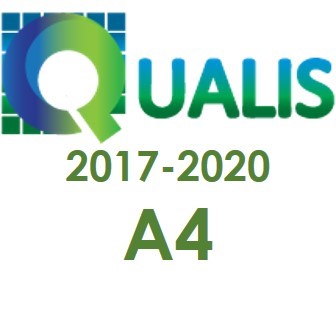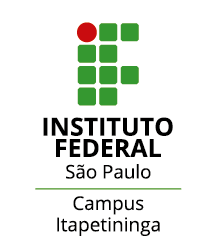Currículos tecidos em redes de conversações
para além da objetivação do outro
Palavras-chave:
Currículo. Produção de subjetividade. Redes de conversações. Cotidiano escolar.Resumo
Analisa processos curriculares como objetivação do outro e/ou como abertura para produção de subjetividades singulares. Compreende essas faces dos currículos como interpenetradas no plano de imanência dos cotidianos escolares, podendo, entretanto, se manifestarem de modo a produzir subjetividades burocratizadas ou inventivas. Defende que o incremento de redes de conversações, estimulam processos de singularização em modos coletivos de estar na escola, assim como ativam a potência das ações coletivas ao mesclar o individual com o grupal, o social. Destaca que a constituição de redes de conversações ao incitar o compartilhamento de experiências, saberes, afetos, envolvem todos aqueles potencialmente interessados em pensar o currículo escolar. Conclui que as redes de conversações dão impulso à inteligência coletiva pois, ao colocarem forças em relação, instituem outros modos de pensar e fazer currículo, docência e processos aprendentes.
Downloads
Referências
BALL, S. J. Diretrizes políticas globais e relações políticas locais em educação. Currículo sem Fronteiras, v. 1, n. 2, p. 99-116, dez 2001. Disponível em: . Acesso em: 17 jul. 2015.
BERSTEIN, B. A estruturação do discurso pedagógico. Petrópolis: Vozes, 1996.
CARVALHO, J. M. O cotidiano escolar como comunidade de afetos. Petrópolis: DPA, 2009.
CASTORIADIS, C. A instituição imaginária da sociedade. Rio de Janeiro: Paz e Terra, 1982.
DELEUZE, G. Conversações. São Paulo: Editora 34, 1992.
DELEUZE, G.; GUATTARI, F. Kafka: por uma literatura menor. Rio de Janeiro: Imago, 1977.
DELEUZE, G.; GUATTARI, F. Mil platôs: capitalismo e esquizofrenia. V. 1. São Paulo: Editora 34, 1997.
DELEUZE, G., PARNET, C. Diálogos. Lisboa: Relógio D’Água Editores, 2004.
ENGUITA, M. F. A face oculta da escola. Porto Alegre: Artes Médicas, 1989.
ESCOSSIA, L.; KASTRUP, V. O conceito de coletivo como superação da dicotomia indivíduo-sociedade. Psicologia em Estudo, Maringá, v. 10, n. 2, p. 295-304, maio/ago, 2005.
FERREIRA, A. B. de H. Dicionário básico da língua portuguesa. São Paulo: Nova Fronteira, 1995.
FOUCAULT, M. Microfísica do poder. Rio de Janeiro: Graal, 1986.
FOUCAULT, M. Vigiar e punir. Petrópolis: Vozes, 1987.
FOUCAULT. M. Une esthétique de l´existence. FOUCAULT, Michel de. Dits et écrits. Paris: Gallimard, 1994.
FOUCAULT, M. A ordem do discurso. São Paulo: Loyola, 1996.
GUATTARI, F.; ROLNIK, S. Micropolítica: cartografias do desejo. Petrópolis: Vozes, 1986.
HARDT, M.; NEGRI, A. Império. Rio de Janeiro: Record, 2006.
MACEDO, E. Base Nacional Curricular Comum: novas formas de sociabilidade produzindo sentidos para educação. Revista e-Curriculum, São Paulo, v. 12, n. 3 p.1530 –1555, out./dez, 2014.
MASSCHELEIN, J.; SIMONS, M. Em defesa da escola: uma questão pública. Belo Horizonte: Autêntica, 2014.
MOVIMENTO PELA BASE NACIONAL COMUM (2015). Disponível em: . Acesso em: 10 jun. 2015.
PINAR, W. O que é Teoria do Currículo? Porto: Porto Editora, 2007.
SKLIAR, C.. A questão e a obsessão pelo outro em educação. In: GARCIA. Regina Leite; ZACCUR, Edwiges; GIAMBIAGI, Irene (Org.). Cotidiano: diálogos sobre diálogos. Rio de Janeiro: DP&A Editora, 2005. p. 49-62.
VEIGA-NETO, A. O currículo e seus três adversários: os funcionários da verdade, os técnicos do desejo, o fascismo. Texto apresentado no V Colóquio Michel Foucault, na Unicamp, nov. 2008.
Downloads
Publicado
Como Citar
Edição
Seção
Licença
Copyright (c) 2019 Revista Internacional de Formação de Professores

Este trabalho está licenciado sob uma licença Creative Commons Attribution-NonCommercial-NoDerivatives 4.0 International License.



 Este trabalho está licenciado sob uma licença
Este trabalho está licenciado sob uma licença 